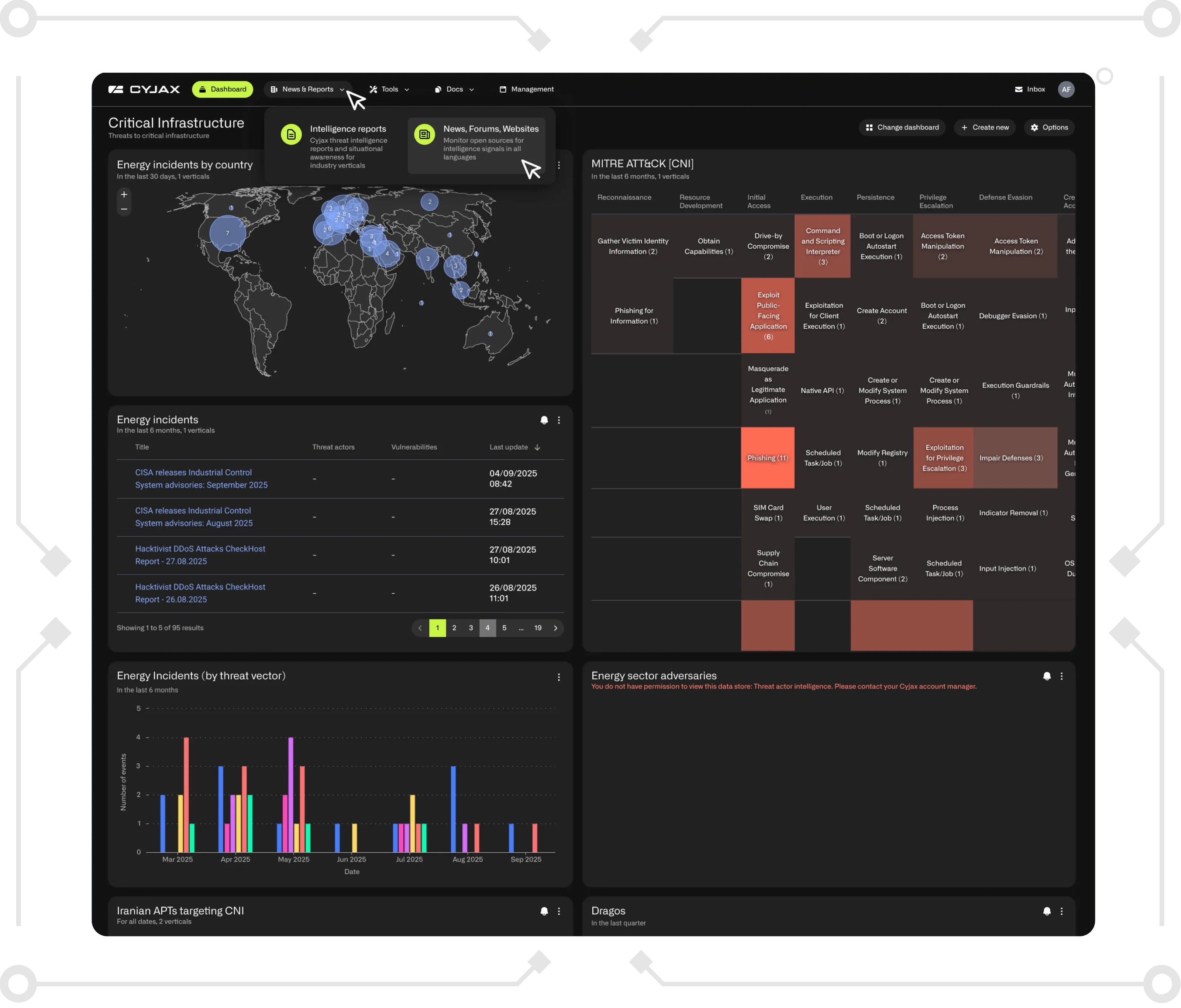An Analysis of the Impact of Trump’s US Election Victory in the Middle East
December 13, 2024
min read

Table of contents
Share
Thank you! Your submission has been received!
Oops! Something went wrong while submitting the form.
Share
Get started
Get Started with CYJAX CTI
Empower Your Team. Strengthen Your Defences.CYJAX gives you the intelligence advantage: clear, validated insights that let your team act fast without being buried in noise.
